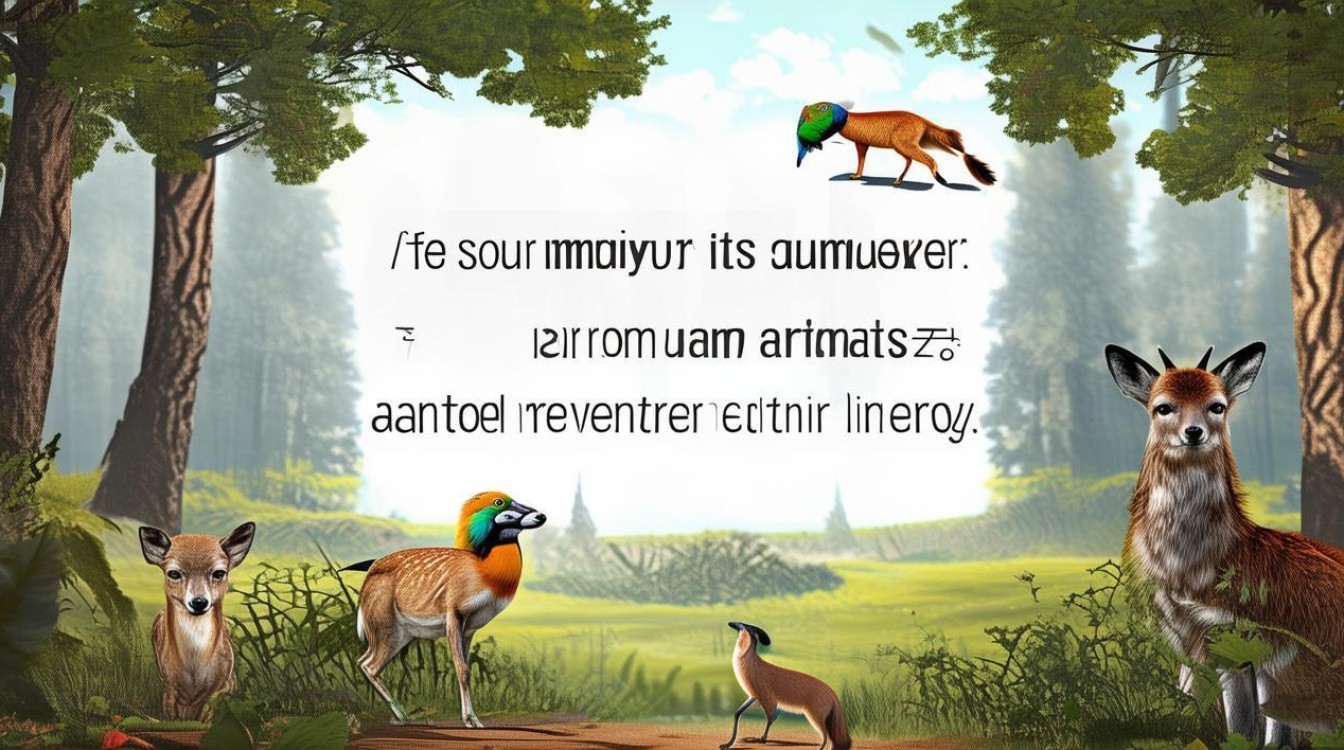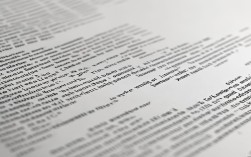下面我将为你提供一个全面的雅思动物话题备考指南,包括:

- 常见话题类型
- 核心词汇
- 高频观点与论证
- 范文解析
- **备考建议
常见话题类型
雅思动物话题主要可以分为两大类:同意与否和双边讨论。
同意与否
通常要求你明确表达立场,并给出至少两个理由来支持。
-
经典题目1:
- Some people think that using animals for experimentation is cruel, but other argue that it is necessary for the development of science. Discuss both views and give your own opinion.
- (有些人认为用动物做实验是残忍的,但另一些人认为这对科学发展是必要的,讨论双方观点并给出你自己的意见。)
- 这是一个典型的双边讨论题目,但也可以看作是同意与否的变种。
-
经典题目2:
- Wild animals should have more space to live in than zoos. Do you agree or disagree?
- (野生动物应该有比动物园更多的生存空间,你同意还是不同意?)
- 这是一个明确的同意与否题目。
-
经典题目3:
- Some people argue that it is more ethical to maintain populations of endangered species in zoos than to let them become extinct in the wild. To what extent do you agree or disagree?
- (有些人认为,在动物园里维护濒危物种的种群比让它们在野外灭绝更合乎道德,你在多大程度上同意或不同意?)
- 这是一个需要你深入思考的同意与否题目。
双边讨论
要求你平衡地讨论两个对立的观点,最后可以给出自己的倾向,也可以不给出。
- 经典题目:
- Some people believe that it is important to protect all wild animals, while others think that it is more important to protect a few species that are beneficial to humans. Discuss both views and give your own opinion.
- (一些人认为保护所有野生动物很重要,而另一些人认为保护一些对人类有益的物种更重要,讨论双方观点并给出你自己的意见。)
核心词汇
掌握精准的词汇是雅思写作高分的关键。
动物保护相关
- Endangered species - 濒危物种
- Extinction - 灭绝
- Biodiversity - 生物多样性
- Ecosystem - 生态系统
- Conservation - (自然)保护,(森林等)管理
- Habitat - 栖息地
- Wildlife sanctuary - 野生动物保护区
- Natural habitat - 自然栖息地
- Reintroduction - (将动物)重新引入野外
动物权利与福利
- Animal rights - 动物权利
- Animal welfare - 动物福利
- Ethical treatment - 合乎道德的对待
- Cruelty - 残忍,虐待
- Suffering - 痛苦
- Humane - 人道的,仁慈的
- Sentient beings - 有感知能力的生物
动物使用相关
- Animal experimentation / testing - 动物实验
- Cosmetic testing - 化妆品测试
- Vivisection - 活体解剖
- Medical research - 医学研究
- Entertainment - 娱乐 (e.g., circus performances, animal shows)
- Circus performances - 马戏表演
- Sport hunting - 体育狩猎
高频观点与论证
支持动物保护/权利的观点
-
道德与伦理:
- 论点: 动物是和我们一样的有感知能力的生物,它们能感受到痛苦和快乐,我们有道德义务去保护它们,而不是为了自身利益而利用或伤害它们。
- 论证: It is our moral responsibility to protect sentient beings as they have the capacity to suffer. Using them for trivial human desires, such as cosmetics or entertainment, is a form of exploitation.
-
生态平衡:
- 论点: 每个物种都在生态系统中扮演着重要角色,一个物种的灭绝会破坏食物链,导致连锁反应,最终影响整个生态系统的稳定,甚至对人类自身造成危害。
- 论证: The loss of a single species can trigger a domino effect, destabilizing the entire ecosystem. For instance, the decline of bees threatens global food security as they are crucial pollinators.
-
经济与旅游价值:
- 论点: 野生动物和自然景观是重要的旅游资源,生态旅游可以带来可观的经济收入,为当地社区提供就业机会,同时也能提高公众的保护意识。
- 论证: Ecotourism generates significant revenue for local communities and provides a strong economic incentive for conservation efforts, creating a win-win situation for both people and nature.
支持利用动物(在特定情况下)的观点
-
科学进步与人类福祉:
- 论点: 在严格监管下,动物实验对于开发新药、治疗疾病(如癌症、艾滋病)以及确保新材料和产品的安全性至关重要,这种牺牲最终拯救了无数人的生命。
- 论证: While regrettable, animal testing has been instrumental in developing life-saving vaccines and medications. Strict ethical guidelines can minimize animal suffering, making it a necessary evil for scientific and medical progress.
-
教育与保护作用:
- 论点: 现代动物园不仅仅是娱乐场所,它们在濒危物种的繁育、公众教育以及科学研究方面发挥着关键作用,它们让城市居民,特别是儿童,有机会接触和了解野生动物,从而激发他们的保护热情。
- 论证: Reputable zoos contribute to conservation through breeding programs and reintroduce species into the wild. They also educate the public, fostering a connection with nature that might otherwise be lost.
-
人类需求与可持续利用:
- 论点: 在某些情况下,对动物的利用是必要的,例如为了获取食物(在传统或可持续的狩猎方式下)或进行必要的害虫控制,关键在于确保这种利用是可持续和合乎道德的。
- 论证: Humans have always relied on animals for survival. The key is to adopt sustainable practices that do not threaten the long-term survival of the species being utilized.
范文解析
我们以一道经典题目为例: Some people think that using animals for experimentation is cruel, but other argue that it is necessary for the development of science. Discuss both views and give your own opinion.**
高分范文
The debate over the use of animals in scientific research is a long-standing and contentious one, pitting concerns about animal welfare against the pursuit of medical and scientific advancement. On one hand, there is a compelling ethical argument against the practice, while on the other, its undeniable contribution to human health provides a strong justification. This essay will explore both perspectives before presenting a considered opinion.
Those who oppose animal experimentation do so primarily on ethical grounds. They argue that animals are sentient beings capable of experiencing pain, fear, and distress. Subjecting them to often-harrowing procedures, such as force-feeding, exposure to toxic substances, or surgical procedures without adequate pain relief, is a profound act of cruelty. From this viewpoint, it is morally unacceptable to use a living creature as a mere tool for human benefit, especially when the suffering inflicted is for purposes that some may deem trivial, such as testing cosmetics or new shampoos. The intrinsic value of an animal's life, they contend, should not be subordinate to human desires.
Conversely, proponents of animal research highlight its critical role in scientific and medical progress. The development of virtually every major medical breakthrough, from the polio vaccine to treatments for diabetes and cancer, has relied on animal testing. These models allow scientists to study complex biological systems and test the safety and efficacy of new drugs in a living organism before human trials. Without this step, the risk to human volunteers would be unacceptably high, and the pace of medical innovation would be severely hampered. For them, the potential to alleviate human suffering and save lives justifies the ethical cost, provided that the suffering of the animals is minimized.
In my opinion, while the ethical concerns are valid and must be taken seriously, a complete ban on animal experimentation is not a pragmatic solution. The key lies in implementing the strictest possible regulations to ensure animal welfare is prioritized. This includes the "3Rs" principle: Replacement (using non-animal models where possible), Reduction (using the minimum number of animals), and Refinement (improving procedures to minimize suffering). Research should be limited to essential medical studies where no viable alternatives exist, and all non-essential testing, particularly for cosmetics, should be unequivocally banned. A balanced approach, therefore, is necessary to navigate the moral dilemma and advance science responsibly.











